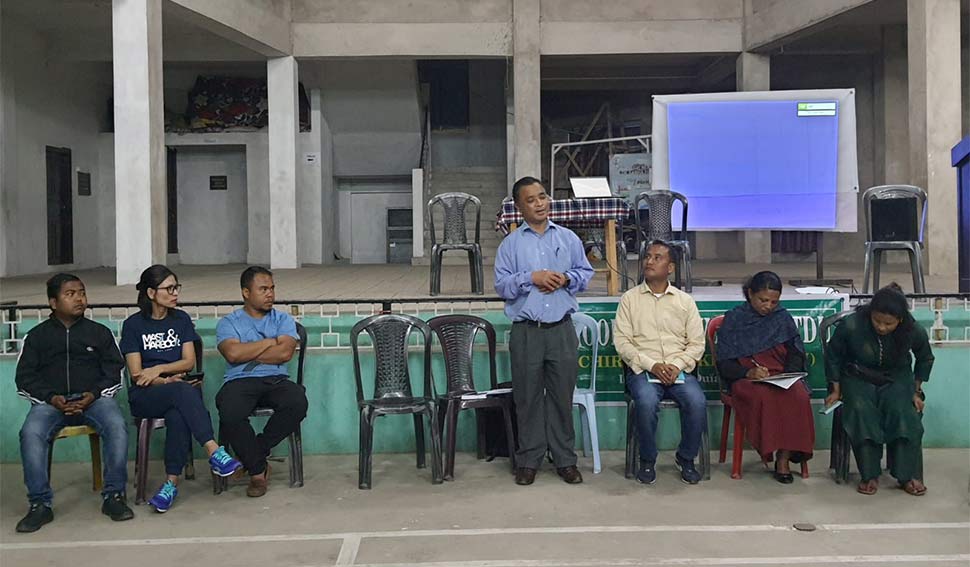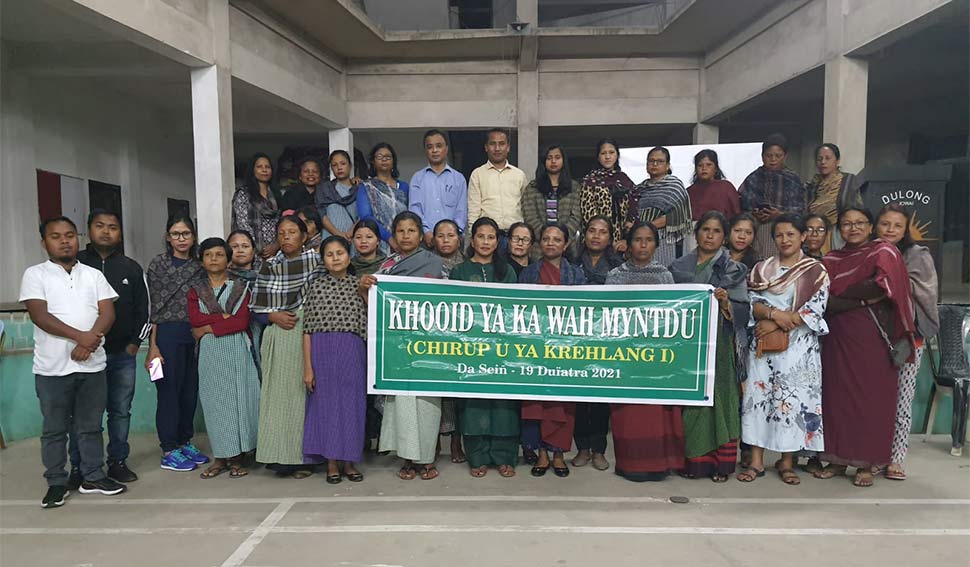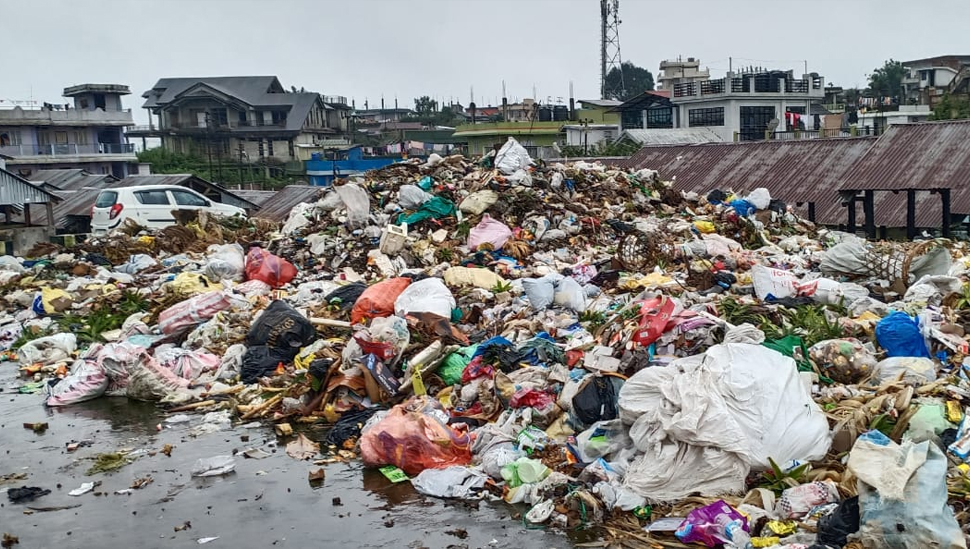Waste Disposal: Lesson from an Unexpected Corner

In way Jowai the town is fortunate to have two organizations which have tirelessly worked for the protection of the town’s important river. The Jañtia Fishing and Environment Protection Association and the newly formed Khuid Yaka Wah Myntdu Organisation are playing their part in protecting the river Myntdu. And Myntdu is not only the lifeline of Jowai but it is also part of town’s culture and ethos.
Recently ka Khuid Yaka Wah Myntdu organization took the initiative in trying to tackle the waste problem that Jowai town is facing for more than a year now. The first initiative taken to help mitigate the waste problem in Jowai was to organize the meeting of KYWM with the women groups of Jowai, The meeting was held on March 18 at Lion Mission Compound community hall. In the meeting Dr H.H. Mohrmen Secretary of Society for Urban and Rural Empowerment shared ideas on how to turn the adversity to an opportunity and help create income from the waste.

Waste to Wealth
Since last February when dumping of waste in the landfill at Mupyut was stopped, SURE has been able to turn kitchen waste to pig feed using Bokashi method. It is estimated that on an average, one household can produce approximately 10 kg of pig feed per week which then can be sold at the rate of Rs. 7 per kg. Other biodegradable waste is then converted to compost using Vermi, Berkley or even natural composting process whichever is convenient to the waste generators. While plastic bottles and containers, papers and cardboard are segregated and sold to garbage collectors. The entire process is possible only because waste was segregated at source.
SURE has reach out to the different community to create awareness about the possibility of starting waste economy in the town. The possibility of converting kitchen waste to pig feed was successfully pilot tested and it has benefitted both the generator of waste and the end users -the pig farm owners. On March 22, a meeting with the Women’s league of the Dorbar Chnong Dulong it was found that some members of the community has already started making compost from kitchen waste using vermin compost method. But the dilemma is with plastic waste? How can plastics be disposed off without open-air burning or dumping it at any available space?
Lesson for all from Lumputhoi
Facebook posts provide solution on how plastics can be disposed which also help complete the circle. Lumputhoi is a small hamlet under eleka Rymbai of East Jañtia hills district and it has a population of about 1200. Face book post on March 23 by S. Lyngdoh General Secretary Dorbar Chnong demonstrated how the village disposed its plastics. Plastics menace which has played havoc everywhere was being disposed of in an eco-friendly way. First of all awareness was conducted by Village Water and Sanitation Committee on October 3, 2021 on the same day prizes were distributed to winners who can collect the largest amount of plastic waste. The one year competition to collect plastics which was started in 2020 was concluded on October 3. SS Syiemlieh Additional Deputy Commissioner informed that the collection was part of the plastic festival and Swachha Hi Seva organized by the DC’s office East Jañtia Hills. 3061 kg of plastics was collected from the 21 villages from both Khliehriat and Saipung blocks and was handed over to Bharat Dalmia Cement plant at Thangskai village.
One major lesson for the JMB and the Urban Department of Meghalaya is that single use plastics and snack wrappers which is urban nuisance can be send to the cement plants to be disposed off in its boilers unit. Facebook friend H. Nonglang posted that as per NGT order it is mandatory for cement company to buy and use RDF (refuse-derive fuel) as fuel in their respective plants. Government and local authorities should insist that cement plants within 100 Km radius comply with the order. The lesson for those in the helm of power is if waste is segregated, biodegradable waste can be converted to animal feed or compost and single use plastic and snack wrappers can be send to cement plants. And this is no rocket science anybody can do it, the only thing that is lacking is the will to get one’s hand dirty by those in the helm of power.

Waste Management rather than landfill
Jowai town has never ever experience a situation worse than this where the issue of waste collection persisted for more than a year. It also true that it will be a herculean task for the government to get landfill for both Jowai and Shillong because there is so much protest from the local people in the proposed site. One can sympathise with the protestors for the simple reason that landfill affect water bodies and it is almost impossible stop open-air burning is such places. Therefore segregation of waste generated from the town is the only option to solve this long pending problem. The problem that Jowai town is experiencing now is a precursor to what is going to happened in the other urban areas in the state too. The approach therefore is how to manage waste rather than just trying to buy landfill. The goal is to achieve zero waste but the next best thing that one can do is to minimize the amount of waste that has to go to the landfill.


Leave a Reply